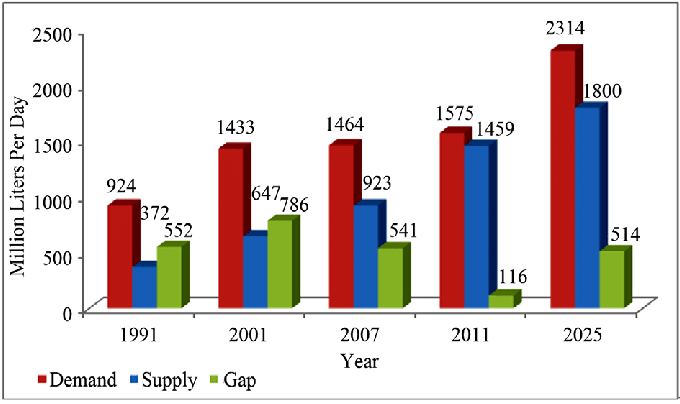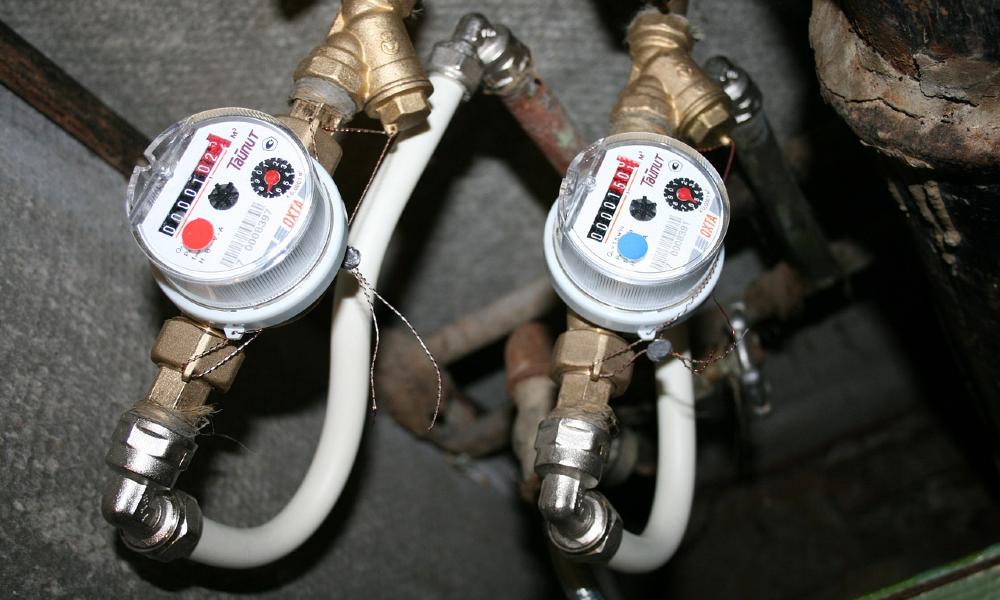Experts say that holding people accountable for the amount of water they use and making them pay for it can be an effective tool in controlling superfluous use of water.
The water crisis in Bangalore has prompted residential societies in the city to seek options that help in checking the superfluous use of water. Several residential apartments in the city are now considering making Individual Water Meters (IWM) compulsory for every apartment.
Areas which do not come under the jurisdiction of Bruhat Bengaluru Mahanagara Palike (BBMP) are now opting for individual water meters. The society administration of Shriram Greenfield Apartments, Budigere, are soon going to implement a new way of billing the use of water by each flat.
The move comes as a step in preventing unnecessary use of water as the city struggles with severe water scarcity. The manager of the society said that they are planning to install individual water meters in flats as soon as possible. The society administration has now sought the consent of the flat owners to implement the plan.
They say that installing individual water meters will not only limit the unnecessary use of water but also allow people to pay in proportion to their consumption. According to the notice the residents have received, the initial cost of installing the meters would involve water meter, valves and gateway to the connection. However, the exact cost required to install such meters is yet to be determined.

Residents of the society welcome the move but have doubts regarding the costs of the procedure. Jyoti, a resident, said that “I think it’s good that you only have to pay for water that you use. It will definitely make people more careful with the use of water. People tend to use more water than they actually need because they are not directly being billed. But if you can keep a check on how much water you are using, you can better manage water consumption.”
Priyali Rout, who recently shifted from Garuda Apartments, K R Puram to Modern Spaces, Marathalli said that, in her last society they did not have individual meters but since the water crisis worsened this year, the society administration is now considering it and is accumulating funds to install the system. She said that, they do have the individual billing system in her new apartment.
Experts say that holding people accountable for the amount of water they use and making them pay for it can be an effective tool in controlling the superfluous use of water. Shashank Palur, a hydro geologist from a non-profit non-government organization (NGO) said, “It is important to monitor how much water is being used by each home so that they can limit their consumption as per their needs. In fact, not just individual meters but a common society dashboard that can suggest where the most amount of water is being used, can help in holding people accountable.”
According to a newspaper report, The Bangalore Water Supply and Sewerage Board (BWSSB) may soon recommend to the state government a few changes to the building by-laws to ensure individual water meters are compulsory for all houses in the newly-constructed apartment complexes.

Existing laws
In areas that come under the purview of BBMP, sub-metering for water is mandatorily required. According to a news report, “In May 2020, BWSSB introduced Regulation 43-A to the BWSSB Water Supply Regulations of 1965, through a government gazette notification. The regulation requires all existing buildings with three or more units and an area of over 2,400 square feet, as well as all upcoming buildings with three or more units and an area of over 1,200 square feet, to install sub-metering systems.”
Bangalore Water Crisis
Bangalore’s water woes have worsened this year owing to rainfall deficit and depleting ground water tables. The state received an 18 per cent below normal rainfall last year due to which drought was declared in various parts of the state. The water scarcity in Bangalore pushed the prices for water tankers at an all time high at up to Rs. 2000 for a tanker.
In a bid to solve the water woes, the use of drinking water for any other purpose was banned by the government. BWSSB also cut water supplies to bulk users by up to 20 per cent. However, most of the measures are short-term and permanent solutions are yet to found to ease the crisis ridden city, Palur said.




